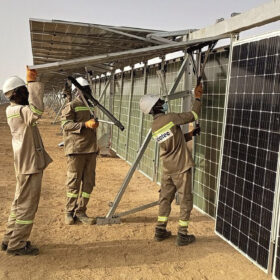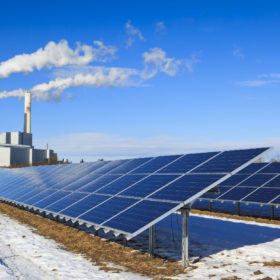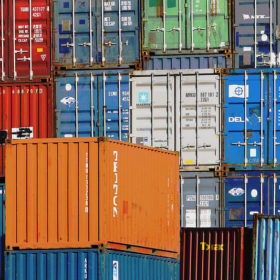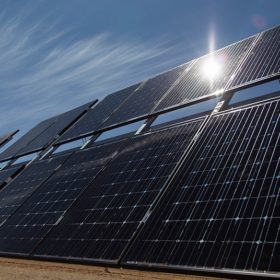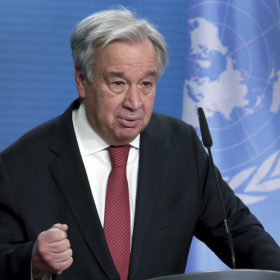Install grid-connected solar, rinse, repeat
Will a redeployable solar and energy storage solution be the answer to unreliable grid electricity across much of Africa, as its developer proposes? Or will it merely be a temporary solution that will see cash-strapped utilities kick the can of universal energy access further down the road?
‘Solar crime’ on the rise
With copper prices rising, inflation driving up the cost of living, and organized criminal gangs stepping up operations in the United Kingdom and across Europe, solar project owners need to be more conscious than ever of security.
Solar power costs continued to fall in 2021, despite rising panel prices
The average global price of solar kilowatt-hours fell 13% on 2020’s prices, as around two-thirds of the renewables capacity installed last year was cheaper than the lowest-cost fossil fuel alternative.
China’s solar cell capacity exceeds 361 GW
Tongwei has also secured another massive polysilicon order and Golden Glass has invested in more heterojunction solar cell capacity. Furthermore, China’s National Energy Administration (NEA) said 23.7 GW of new solar was deployed in China in the first five months of the year.
Analyst predicts extent of rise in this year’s solar capital costs
Wood Mackenzie this week made a slew of predictions for the industry in 2022 and noted the effects the US’ recently announced anti-circumvention investigation is already having on utility scale plans.
World Bank spells out how Pakistan can hit 13 GW of clean power
With its growing population and rapidly increasing energy needs, Pakistan’s energy security is undermined by the overriding share of imported fossil fuels in its energy mix. But, by turning to its untapped, tremendous solar, wind and biomass potential, the South Asian country could spur social and economic development, while improving energy access, says IRENA.
Polysilicon maker predicts 5-year shortage of solar raw material
TBEA-owned Xinte Energy says it cannot produce polysilicon quickly enough to meet demand and wants shareholders to back its bid to quadruple its manufacturing capacity by mid 2024.
Irena fleshes out chilling effect of Covid on off-grid solar
The clean power numbers published annually by the International Renewable Energy Agency provide a snapshot of the global solar market and, this year, a lot of figures were unchanged from the previous dataset, especially in the off-grid segment.
Solar the energy workhorse in latest gloomy IPCC verdict
Photovoltaics can wipe out 4.25 billion tons of carbon emissions every year this decade, according to the UN Intergovernmental Panel on Climate Change. Even so, the actions announced so far remain way short of what is needed, with capital flows to fossil fuels still greater than the cash directed toward combating climate change.
World will need 5.2TW of solar this decade to avoid climate breakdown
The International Renewable Energy Agency’s latest global outlook has spelled out just how ‘woefully’ far the world is from capping temperature rises at 1.5C, and lamented: ‘The stimulus and recovery efforts associated with the pandemic have also proved a missed opportunity.’

